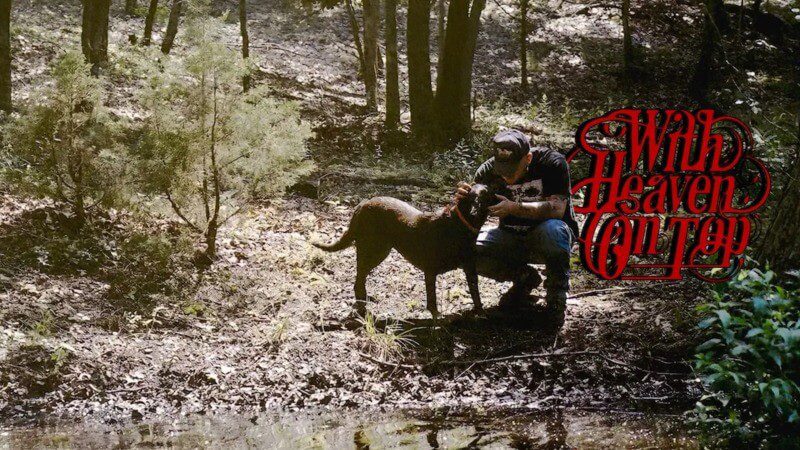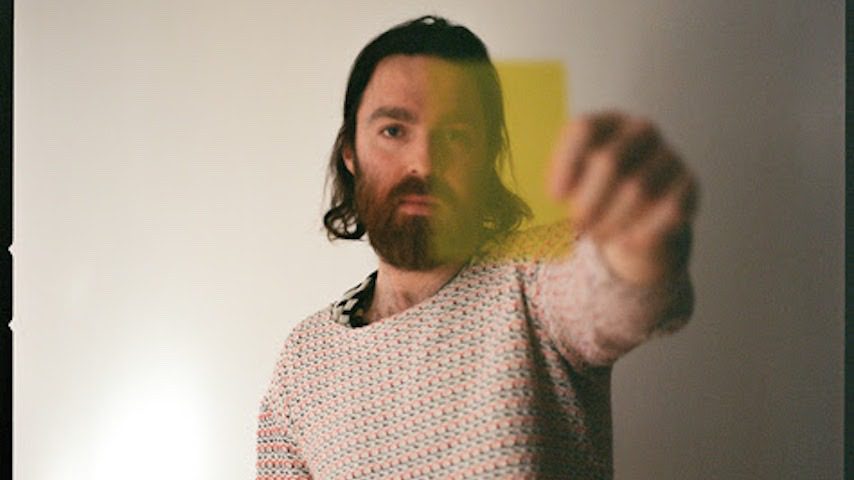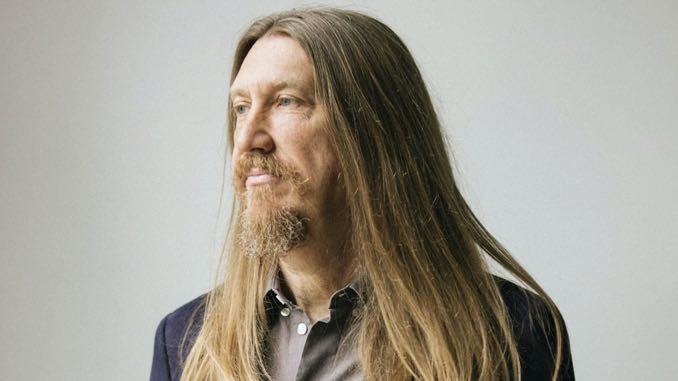When Fleet Foxes’ sophomore record Helplessness Blues was nominated for Best Folk Album at the 2012 Grammys, in the category’s inaugural year, Robin Pecknold and company didn’t show up to the ceremony. The gold gramophone eventually landed in the hands of The Civil Wars for Barton Hollow, a sturdy placeholder amongst the folk-rock revival that had overtaken the twangy corner of a mainstream genre carried by radio favorites Mumford & Sons and The Lumineers. But Fleet Foxes rose above all of it. On top of the record’s nomination, Helplessness Blues occupied top spots on countless publications’ year-end lists, a body of work as mountainous and captivating as the untouched countryside acreage it symbolized. Pecknold’s early compositions and stacked vocal harmonies mirrored Phil Spector’s Wall of Sound technique, just as Brian Wilson’s Pet Sounds and SMILE compositions had previously; his lyrics captured the symbiotic relationship between cinematic heartbreak and autumnal folklore unearthed from the quixotic Pacific Northwest landscape he was raised in.
“The world that we were in was pretty innocent and naive. [I was] hiking all the time and hanging out with my family and friends,” Pecknold tells me of his life before Fleet Foxes’ self-titled debut came out. “We had this pretty small, utopian-feeling artistic world in Seattle at the time.” Then, after the resounding success of Fleet Foxes and extensive touring, Pecknold’s songwriting became tempered with a fantastical response to the exhaustive cycle of being locked in buses and flying to Europe over and over for three years. “Helplessness Blues was me hoping to get back to how things were before the first record came out,” he adds. “And the lyrics came from a place of imagining some naive, perfect life of having a little restaurant, a store and an orchard in some pretty town.”
When we speak, it’s an unusually warm December Monday on the East Coast—the last Monday morning of 2021 weighed down by whatever emotional turbulence occurred on Succession the night before—and Pecknold is holed up in his New York City apartment. Nearly a decade removed from the 2012 Grammys, the songwriter looks at the band’s absence from a mature remove. “The nomination was a great success because that album was about honoring our influences, like Roy Harper and Joanna Newsom and Joni Mitchell,” Pecknold says. “[It was] folk music that we loved and stuff that evoked [the genre] with care.”
That mantra rings true on the band’s most recent offering, 2020’s Shore. When the record arrived on the heels of last year’s autumnal equinox, it did so with a coterie of acknowledgements in tow. Instead of invoking his influences through sonic imitation, Pecknold was now name-dropping them explicitly. In his artist’s statement, he said he “wanted to make an album that celebrated life in the face of death,” and he did so by conjuring globality through the spirits of deceased musicians—David Berman, Richard Swift, Judee Sill, John Prine—whom he loved greatly, in juxtaposition with that seminal Fleet Foxes self-contained heartache and fits of momentary, geographical joy. “I think, with Swift and Berman passing, [their deaths] made it clear to me how important community is and how music is a binder and how these people could bring so many others together,” Pecknold recalls. “I think that was already on my mind before the pandemic, but when we were all isolated and death was everywhere, that was what the album centered around and was exploring.”
Shore
recently earned a Grammy nomination for Best Alternative Album—alongside Japanese Breakfast, Arlo Parks, St. Vincent and Halsey—after a period of active lobbying, on social media and in magazine ads, for the Recording Academy’s notice. The record isn’t just Fleet Foxes’ most experimental work to date, it’s also their most accessible. “With a fourth album, you run into some of the same problems as ‘Well, what are you going to do for the fourth season of Succession? What are the changes going to be?’” Pecknold says. In turn, songs like “Sunblind” and “Can I Believe You” ditch the band’s baroque, Americana style for a poppier acoustic sheen, while suites and overtures (“The Shrine/An Argument,” “I Am All That I Need/Arroyo Seco/Thumbprint Scar”) are substituted for shorter works (“Thymia,” “For A Week Or Two”). “It’s very freeing at this point to not have to think as much about some kind of music industry narrative,” he adds. “It’s nice to only be thinking about what’s exciting to make.” The expansive, joyous mementos of the band’s new—but still familiar and charming—sound made it easier for them to slide into a broader category during awards season, all while retaining their foundational folk roots.
Most of Shore was finished when the pandemic hit. After a four-month pause and not knowing where to turn next, Pecknold returned to the studio and made a three-month push to get the record out by September. “I just wanted to finish it,” he says. “It seemed like, immediately, there was just no chance for touring or anything, and I didn’t want to hold onto it for a year.” What came from those final sessions were fluid transitions between songs not tethered to the same genre, and compositions just as intricate as old Fleet Foxes numbers, but newly hopeful in the face of lingering catastrophe. “It’s a little bit surreal. Shore is a little bit surreal, because it is so conditional to 2020 and the period of time we’re in, and there hasn’t been a tour yet,” Pecknold says of the album’s rollout.
A year ago this week, he descended upon the St. Ann & the Holy Trinity Church in Brooklyn to perform songs from all four Fleet Foxes records, with a special focus on Shore. It was uncharted territory for Pecknold, who hadn’t played a solo show in over a decade—when he performed solo in support of Newsom’s 2010 tour for Have One On Me. “I love making recordings, but having to be onstage has always been a little bit harder for me—so I wasn’t expecting a lot from this livestream.”
Initially, the livestream was meant to be a one-time performance, just like any other concert—but when wintertime resurfaced in 2021, so did the fans’ desire to revisit the show. “There was just something about the fan’s response to that concert as this, kind of, special holiday, set in a church and tied into the solstice with elemental performances of the songs,” Pecknold says. The result became A Very Lonely Solstice, an emotional upheaval achieved by stripping down delicately layered work. Pecknold’s magnetic and intricate compositions are given a gothic and stark makeover. There’s no immediate audience, only Pecknold, the crew and the Resistance Revival Chorus (who perform Shore opener “Wading in Waist-High Water”). And although there’s a fully mixed recording of the band’s 2018 Ryman Auditorium performance from the Crack-Up tour awaiting a future release, Solstice is the first live record in Fleet Foxes’ 15-year existence.
Fan favorites “White Winter Hymnal” and “Mykonos” didn’t make it onto the tracklist, because, as Pecknold puts it, “those songs don’t really lend themselves to solo performances,” and he couldn’t fly the rest of the band out to New York to rehearse and perform them. Along with seven cuts from Shore, A Very Lonely Solstice features “Tiger Mountain Peasant Song” from Fleet Foxes, “Blue Spotted Trail” and the title track from Helplessness Blues, and a cover of Barry Gibb’s “In the Morning,” among others. “We tried to do the ones that would work alone, and that’s tough, because it meant all the ballads from all four albums and a couple covers, stuff that was lighter,” he says. “I like making music with elements that are necessary. If that means it’s impossible to do by myself, then that’s fine.”
Pecknold calls A Very Lonely Solstice a “Christmas album without any Christmas songs on it.” Fleet Foxes have always been wintry by design. Their discography reeks of timber and cascading terrain, but in the best possible way. And Pecknold’s lyrics adapt to whatever world we’re in. Shore track “I’m Not My Season” will, someday, come to us as a tender vignette of longing love, just as so many Fleet Foxes songs have in the last two decades. When I first discovered the band in the summer of 2014, I’d just started seriously dating—graduating from the semi-fantastical mythicality of pre-driver’s license relationships, and finally interacting with real bouts of heartbreak and loss in a meaningful way. Amidst a chain of breakups, Pecknold’s lyrics nestled themselves into my subconscious like the perfect soundtrack to my own microcosm of personal grief. Seven years later, “And though I liked summer light on you / If we ride a winter-long wind / Well, time’s not what I belong to / And I’m not the season I’m in” is an urgent translation of the tempest that is us navigating through another calendar year of unfamiliarity and distance, from both our loved ones and whatever future refuses to hold us.
Pecknold understands the gravity of his own lyrics, too, especially in how much they’ve resonated with fans during the pandemic. When he falls into one of the final songs of the livestream, Crack-Up opus “If You Need To, Keep Time On Me,” the camera pans out to a shot of him partially obscured by a cathedral column—his eyes close, the nylon strings on his guitar vibrate, his stripped-down tenor echoes off the church walls. “How could it all fall in one day?” he sings. “Were we too sure of the sun?” Five years ago, the lyrics commemorated profound remorse for some great romance lost. Today, they’ve become a manifesto of retrospect, punctuated by their samelasting presence in the world we live in—in how, maybe, we took everything for granted before March 2020. “If a song is expressing something that becomes this global feeling, too, but it was there in a song five years ago, I think that means it’s time to just, I don’t know,” Pecknold says, interrupting his own train of thought. “I look back on some of those things and think, ‘Man, I wish I hadn’t put myself in a situation that felt so isolating.’ And then we were all kind of forced into that.”
Whereas other artists are doing their best to return the art of performance back to its pre-pandemic aesthetics while touring in support of their new records, Pecknold isn’t eager to present the songs from Shore in ways they aren’t—and Fleet Foxes won’t embark on a bonafide tour for the record until nearly two years after its release. Instead, he used A Very Lonely Solstice as a beautiful social reset, a barebones attempt to connect with people during a part of history where connecting felt (and still feels) so out of reach as the days grow longer. There wasn’t a theatrical facade at play; it was just one guy with a guitar trying to make sense of this very nonsensical thing going on while hundreds of strangers sang along from hundreds of miles away, behind their digital screens. “We had access to this big church, but nobody was going to be in there. It was a lonely time and it was lonely for everybody,” Pecknold recalls. “So just having a document of that, having that reflected in the content, as well as the way it was filmed, was kind of like making a weakness into a feature.”
Matt Mitchell is a writer living in Columbus, Ohio. His writing can be found now, or soon, in Pitchfork, Bandcamp, Paste, LitHub and elsewhere. Find him on Twitter @matt_mitchell48.
Watch a 2008 Fleet Foxes performance from the Paste archives below.



